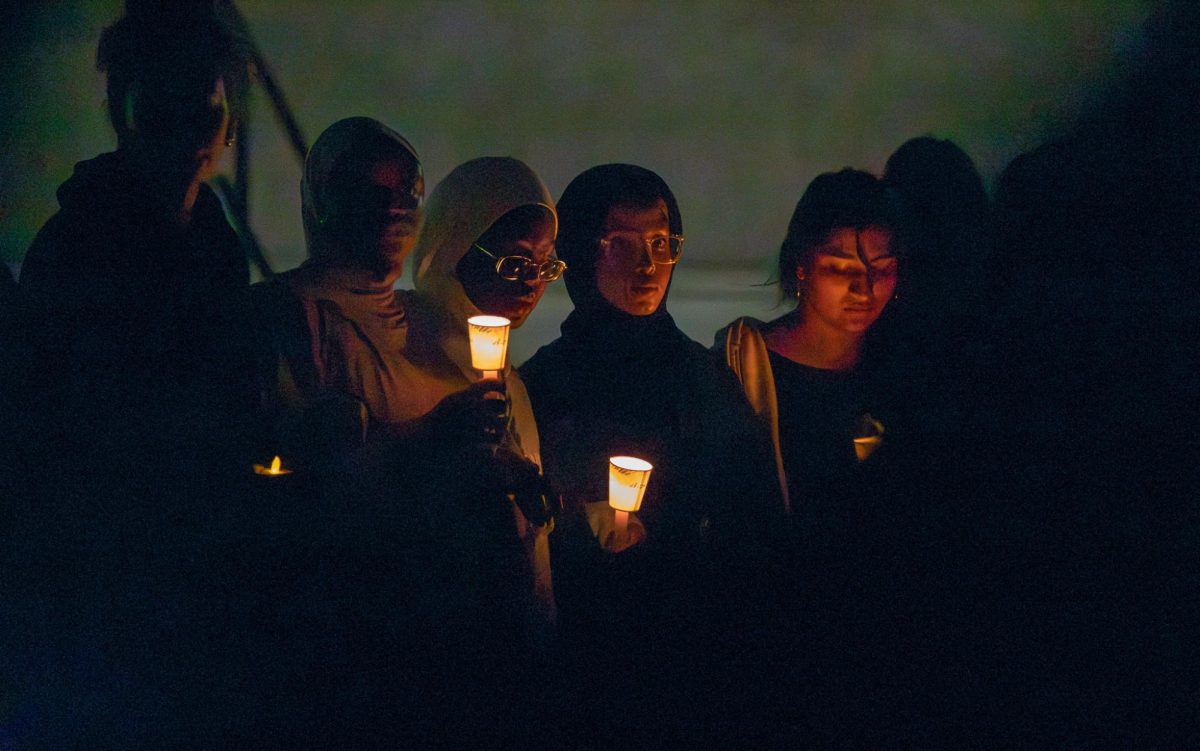Over 120 students and community members gathered during a candlelight vigil Friday at Library Mall in commemoration of Marcellus Williams, a Black man who died Wednesday from lethal injection after living on death row for over 20 years in the state of Missouri.
In 2001, Williams was convicted of the first-degree murder, robbery and burglary of Felicia ”Lisha” Gayle despite no physical or crime scene evidence connecting him to the crime and the state presented no motive.
Williams’ conviction was largely based on the conflicting testimonies of two incentivized witnesses, whose accounts contradicted the crime scene evidence, their own previous statements, and each other, according to the Midwest Innocence Project.
One witness was allegedly paid $5,000 by prosecutors to submit testimony claiming that Williams had admitted to the murder of Gayle, according to the Innocence Project.
Williams had maintained his innocence since his conviction.
The perpetrator left behind substantial forensic evidence, including fingerprints, footprints, hair and trace DNA on the knife used in the murder, which came from Gayle’s kitchen. None of this forensic evidence links to Williams, according to attorneys from the Innocence Project.
Earlier attempts to stop the execution were rejected on Monday by both the Missouri Supreme Court and Republican Governor Mike Parson. This marks the third execution in Missouri this year and is one of five scheduled to occur across the country within a seven-day period, according to the Death Penalty Information Center.
The vigil was organized by the Wisconsin Black Student Union, during which attendees formed a large circle, linking arms and holding candles.
The vigil commenced with a statement from WBSU director of Outreach Deanna Frater.
“Not only was Williams denied the chance to live by Governor Mike Parson, but also the United States Supreme Court,” Frater said. “I’m tired and drained of the collective mourning, the constant disappointment and blatant racism.”
During her speech, Frater urged those listening to make it to the polls in November, stressing the importance of exercising the right to vote to incite change.
“This upcoming election will be transformative with seats in the Senate and House of Representatives, President and many other political seats that our future will be in the hands of,” Frater said. “We all have the opportunity to make a difference.”
After her speech, those in attendance stood in six-minutes of silence with their arms interlocked, honoring Williams’ memory.
When the six minutes elapsed, the attendees were invited to step into the center of the circle to speak.
Several people shared their voices, including Mya Cullen, a sophomore at the University of Wisconsin. Cullen later spoke to The Badger Herald, sharing the emotions she experienced during the vigil.
“I felt very empowered, seeing people coming out tonight to support him,” Cullen said. “It was a whole wave of emotions mixed with sadness, grief, but also hope that people are still coming here and showing up and making these murders seen.”
Cullen said Williams’ case should be viewed through a broader lens, emphasizing that Williams’ identity extends beyond being Black.
“We need to start realizing that he is a black man, but he’s also a human and his death doesn’t just affect us black individuals,” Cullen said. “Everyone should be feeling outraged by this and everyone should be pushing for a difference.”
Samuel Beaver, UW student and member of the Board of Directors for Leaders Igniting Transformation also spoke at the vigil. Beaver later told The Badger Herald how he thinks the UW and Madison community should move forward following Williams’ death.
“There needs to be some sort of bridge established between different orgs and different groups of people where we can come together,” Beaver said. “[So] when these issues are affecting all of us at once… we come together and we address these issues as a collective.”


